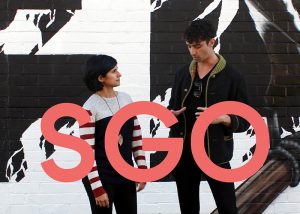Part three of six of my thoughts from the one-month overseas exchange to Malaysia, Turkey, Spain and Malaysia I undertook this year.

Our private meeting with the former PM Tun Dr Mahathir Mohamad.
Politics in Malaysia is a tricky business. Mainly run by Malays and Malay/Islam dominated parties, the incumbent government refuses to loosen its steely grip on power, despite dubious election results (or maybe because of it). It was interesting to talk with the Tun Dr Mahathir, a Prime Minister who was in power for 22 years. He stated that “I thought I was Prime Minister for too long”, explaining that he wished to retire just before the Asian Financial Crisis of the 1990s, but stayed on in order to stabilise the country. Explaining his veracity for the job and his continued commitment to politics, Mahathir said “I don’t like anyone to look down on me”. From this comment and others, I sure know I would not like to be one of his enemies. Still, Mahathir’s party is back in power, with the current Prime Minister Najib Razak of Barisan Nasional leading a fierce fight in the political arena. According to one journalist with whom we met (I won’t name them out of respect for their position), political and media collaboration is so enmeshed and entwined, that there is very little independent media, thought or way to act in Malaysian society. Like so many political parties around the world, it seems that those who grip hardest, have the most to fear. Already with large segments of the population unhappy with the dealing of Anwar Ibrahim in past years and the outcomes of the latest election, I hope it won’t be long until something shifts in Malaysian society to bring the government back into accountability.

Char of Foreign Relations, Erol Adayilmaz.
Turkish politics revolve around a successful government that can get things done and a lack of a viable opposition, transparency and Middle Eastern regional support (thanks to a few key decisions in the past months). Chair of Foreign Relations Mr Erol Adayilmaz stated that there were a number of legal problems that made it both difficult for politics and society. One issue I found particularly interesting was the criminal code, which is appallingly outdated in a number of areas and long overdue an overhaul (as mentioned in a previous post). I had a bit of a problem with Turkey’s so-called secularism too. In 2007, people didn’t want a first lady who wore a veil (despite 99% of the population being Muslim). I know Turkey is “secular” and seems to be quite adamant about the division of religion and the state, but why does that mean you should discriminate against someone for an item of clothing they wear? Perhaps of more contemporary relevance, the

Relevant considering recent protests?
allegations of crime and misconduct that riddle the Justice and Development Party (AKP) are the biggest obstacle to political peace at the moment. After being content with the status quo in the government for the past decade, I would say that things are changing in Turkey and the upcoming elections will demonstrate just how far one government can go before people become unhappy.

Cordoba, Spain.
In Spain we had the least opportunity to observe the political happenings of the country. With that said, however, there were a number of political protests happening in Spain at the time of our study tour. Prior to our arrival, a bill was approved in the Spanish cabinet that could fine ‘unauthorised’ street protesters up to 600 000 euros. This resembles quite a scary move, as Spanish protests (mostly anti-austerity protests) up until this point have been largely peaceful, despite the 26% unemployment rate (almost 50% amongst young people) and rising levels of social stress. It calls into question the freedoms guaranteed under Spanish democracy and hints at a government that is just a little bit too scared of its own constituents.
Finally, the monarchy of Morocco is an interesting affair. The Professor Abdelhaj Moudden we spoke to at the School of Governance and Economics (EGE) stated that the monarchy is the arbiter of all differences in society. As far as the Arab Spring goes (and Morocco is classified as an Arabic country as it has adopted Arabic as the national language), the main question the Professor believes we should be asking is how regimes have reacted to the fear or threat of falling. The governments show different dimensions of their own personalities.

Rabat, Morocco.
In Morocco, in the moment of crisis the government demonstrated their skills in dealing with volatile situations. Their first reaction was that they were able to tolerate some of the protests that were peaceful, using suppression where situations turned violent. In the case of peaceful protests, the next step was to respond to some of the demands (such as hold elections and create a new constitution). Following this was working out the way to maintain powers in a new constitution, have elections and then respect the outcomes. Although all of this was conducted in Morocco, when asked about the real change that had occurred, the Professor said “nothing significant”. Really, it appears that politics in Morocco revolves the perception that something is being done and the image that change has been made for the better. Scratch under the surface however, I doubt you would be able to spot any substantive differences.
Keep tuned – 3 more blogs are on their way! ![]() These blog pieces are part of my assessment for the course.
These blog pieces are part of my assessment for the course.



